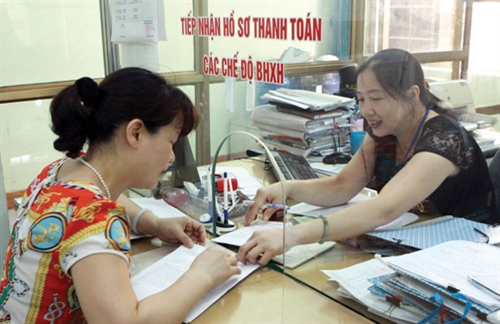Tax authorities are finding it tough taxing e-commerce as it is not that easy controlling online business revenues given cash payments so common in Vietnam, lawyers Chau Huy Quang and Cao Dang Huy recently wrote on the Saigon Times weekly.
Recent tax statistics have revealed an inverse rate between the booming e-commerce and tax revenues from online traders.
According to the 2016 Vietnam internet resources report of Vietnam Internet Network Information Center, 97 percent of registered websites were used for business or trade promotion purposes. Total e-commerce turnover hit around USD 6 billion but taxes collected from business activities on e-commerce websites in general and social networks in particular remained unproportional.
Although online traders are obliged to pay taxes as per Vietnamese law, collecting taxes from online businesses remains a challenge for tax authorities as it is difficult to oversee the revenues of these businesses.
Under the 2006 Tax Administration Law, every business or individual, regardless of having a business registration certificate or not, that earns over VND 100 million from trading activities, including those on social media operating as e-trading floors, must register, declare and pay taxes.
Currently, there are two types of personal income tax for individual traders, namely flat tax and specific tax, which are determined mainly based on taxpayers’ declarations. To declare and pay taxes, individual traders must register their tax codes with tax authorities.
But online traders are reluctant to make tax declaration while the tax authorities’ facilities and personnel for tax inspection and collection are limited, failing to catch up with the swift growth of e-commerce. The common practice of making cash transactions in Vietnam also makes it impossible to determine exact incomes of online shops.
Tax authorities also have difficulties taxing individuals doing business through social networks, such as Facebook, the number of which is growing rapidly in Vietnam. Without cooperation and assistance from social network owners, tax administrators can hardly access information of these traders.
Therefore, social network owners should have the obligation and responsibility to cooperate with relevant authorities to share information on persons doing business on their networks.
 |
| A website for motorcycle trading at https://www.lazada.vn |
Under Government Decree No. 52 of 2013 and Finance Ministry Circular No. 47 of 2014, social networks which allow their members to open online booths or sub-websites to display their goods or services, or open sections allowing their members to publish commercial information must register as e-trading floors with the Ministry of Industry and Trade. Traders or organizations establishing these social networks must fulfill responsibilities of e-trading floor service providers as required by law.
But the current law fails to govern foreign social networks involved in e-business activities, which are established under international domain names with servers located overseas, owned and operated by foreign traders without representatives in Vietnam.
Although addressing foreign social networks providing information trans-border for Vietnamese users, Government Decree No. 72 of 2013 and Ministry of Information and Communications Circular No. 38 of 2016 do not touch upon goods sellers on these social networks. Neither these documents require social network owners to cooperate with and assist state authorities in providing information about these goods sellers.
This shows legal loopholes in the management of foreign social networks as well as challenges for enforcing obligations of their owners toward the Vietnamese State in general and Vietnamese tax authorities in particular.
At present, sanctions on tax evasion and frauds are relatively stringent, under which individual traders with taxable incomes will be administratively sanctioned if they fail to make tax declarations or make false declarations. Failure to submit tax registration applications and tax declarations may be fined an amount triple the evaded tax amount, under Decree No. 129 of 2013, while evasion of a tax amount valued at VND 50 million or more may result in a criminal charge.
However, it should be noted that most online traders are individuals and small companies earning unstable and small incomes from online business. A majority of them are start-ups which should be encouraged and need financial support for development. Therefore, simple and open mechanisms should be adopted to encourage online traders to voluntarily declare and pay taxes.
In developed countries, tax enforcement and control mechanisms are mostly based on declarations of taxpayers but most transactions are made via bank accounts rather than in cash, helping secure full and accurate declaration by taxpayers.
State management agencies should adopt measures to encourage online payment and reduce cash transactions to help oversee revenues of online traders. There should also be a closer coordination between concerned authorities and intermediary payment banks. Particularly, the e-commerce law should be revised to include liabilities of social network owners, especially foreign ones, to assist and work with tax authorities.
In another development, Ho Chi Minh City tax authority has recently proposed taxing persons doing business through Facebook, online news service Vnexpress reported. Nguyen Quy Trung, Deputy Director of the Tax Policy Department under the General Department of Taxation acknowledged further study on how to effectively manage and collect taxes from these traders is needed, saying the tax sector would work with other sectors, including banking, trade and industry and information and communications, to adopt appropriate tax policies for e-commerce.
Deputy General Director of Taxation Cao Anh Tuan said the General Department of Taxation would soon guide the collection of tax on business activities on social networks, stressing that public information about law observance for taxpayers would be promoted first, given this was still a new form of business.- (VLLF)









